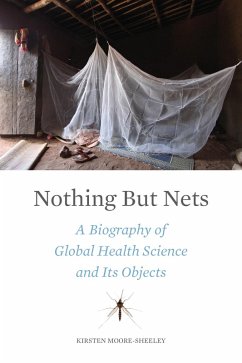How insecticide-treated bed nets became a staple of global public health initiatives and reshaped health practices in Africa and beyond.Distributed to millions of people annually across Africa and the global south, insecticide-treated bed nets have become a cornerstone of malaria control and twenty-first-century global health initiatives. Despite their seemingly obvious public health utility, however, these chemically infused nets and their rise to prominence were anything but inevitable.In Nothing But Nets, Kirsten Moore-Sheeley untangles the complicated history of insecticide-treated nets as it unfolded transnationally and in Kenya specifically-a key site of insecticide-treated net research-to reveal how the development of this intervention was deeply enmeshed with the emergence of the contemporary global health enterprise. While public health workers initially conceived of nets as a stopgap measure that could be tailored to impoverished, rural health systems in the early 1980s, nets became standardized market goods with the potential to save lives and promote economic development globally. This shift attracted donor resources for malaria control amid the rise of neoliberal regimes in international development, but it also perpetuated a paradigm of fighting malaria and poverty at the level of individual consumers. Africans' experiences with insecticide-treated nets illustrate the limitations of this paradigm and provide a warning for the precariousness of malaria control efforts today.Drawing on archival, published, and oral historical evidence from three continents, Moore-Sheeley reveals the important role Africans have played in shaping global health science and technology. In placing both insecticide-treated nets and Africa at the center of global health history, this book sheds new light on how and why commodity-based health interventions have become so entrenched as solutions to global disease control as well as the challenges these interventions pose for at-risk populations.
Dieser Download kann aus rechtlichen Gründen nur mit Rechnungsadresse in A, B, BG, CY, CZ, D, DK, EW, E, FIN, F, GR, HR, H, IRL, I, LT, L, LR, M, NL, PL, P, R, S, SLO, SK ausgeliefert werden.









